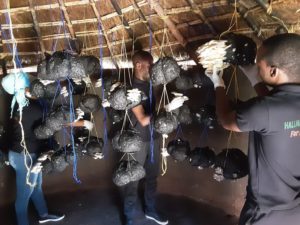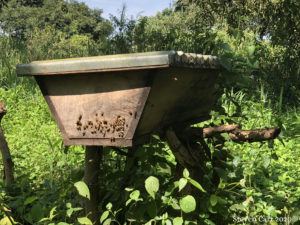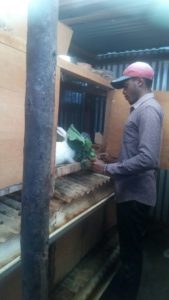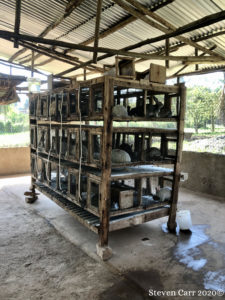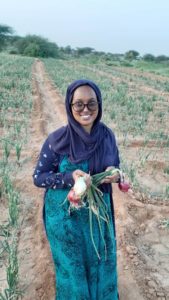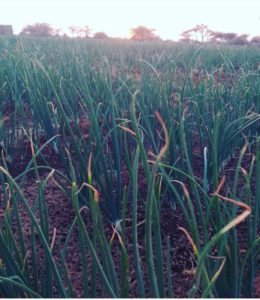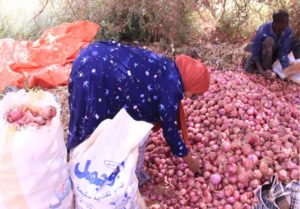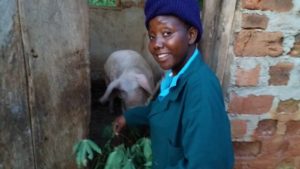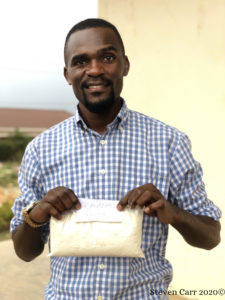Entrepreneurship and innovation are critical for making our food production resilient and sustainable. When given the opportunity, young people can lead the change. The SIANI Expert Group with the Agripreneurship Alliance aims to build the capacity of young entrepreneurs to do agribusiness successfully.
Traditionally, education has focused on technical agricultural skills. However, successful and sustainable modern farming need to have a business approach. The Agripreneurship Alliance, together with partner universities and institutions in East Africa, offers the ‘Entrepreneurship in Agribusiness’ course that helps students to develop their business ideas, understand how to make a business plan, learn how to run a business and access start-up capital. The course uses a blended learning approach wherein locally trained facilitators guide the participants whilst using online materials and in-person experiential learning approaches.
Mentorship takes a center stage during the course, where more experienced entrepreneurs provide the participants with guidance and advice on their journey to fully develop their business ideas. For many young people, mentorship is a key factor when it comes to starting a new business. Currently, agriculture is a high-risk sector and young agripreneurs often have to rely on their courage. Access to resources and opportunities could enable youth to lead the way forward. Mentorship programs are the first step in this direction.
Creating innovative products with bananas
Hillary Natumanya, a 28-year-old post-graduate student from Rushere in western Uganda, joined the Entrepreneurship in Agribusiness course with the goal to develop innovative products from banana. Many of the banana-growing districts in Uganda suffer from food insecurity and malnutrition, and, for a long time, Natumanya has been thinking about how surplus bananas could be out to better use for the benefit of the local population.
Natumanya had the idea to process bananas into nutritious flour that has a longer shelf life than a fresh banana. What is more, the by-products of this process could be used as fertilizer. It is common to turn other food crops into flour, so Natumanya thought why not banana? The banana flour can be used for baking bread and making porridge, whilst the banana peel provides for good animal feed or fertilizer.
With the mentorship during the course, Natumanya could develop his idea further and create a business plan. He received a start-up grant of $1,000 after winning a competition for his idea and is now thinking about starting his own company and expand to a broader market.
Following one’s dreams of farming
Ritah Najjemba Lutaya, an energetic pig farmer from Uganda, has been discouraged from working in agriculture her whole life. Like many young people she was told that it was not possible to make a good living from farming. However, Lutaya has always been determined and decided to follow her dreams. Today, she runs her own farm and owns thirty pigs.
”During the Entrepreneurship in Agribusiness course we were taught how to prepare business plans, mobilize funds for our businesses and also come up with unique value propositions – all that really inspired me. When I analyzed myself and my business, I recognized that I had many gaps to fill,” says Lutaya.
During the course, she received mentorship support and won a prize of $1000 as seed capital. Furthermore, Lutaya developed a business plan and strategy for her business to continue to grow. After the course, she interned at a pig farm in Germany where she got a lot of new ideas that she is now implementing at her farm in Uganda.
Harvesting the results of determination
Nasra Ibrahim has sought to venture into agribusiness in parallel with her studies at IGAD Sheikh Technical and Veterinary School in Somaliland. Starting her own business would make it easier for her to avoid unemployment after graduation. Ibrahim noticed that the current suppliers of onion in Somaliland did not meet the market demands. A lot of onion had to be imported which often resulted in lower quality and shorter shelf-life.
Through the Entrepreneurship in Agribusiness course Ibrahim received support that strengthened her skills and helped her refine her business idea. She could start her business after having received a start-up grant. Today, she employs five other youths and produces eight tons of onion per year.
Explore more stories of young agripreneurs by the drop-down sections of this article below.
The Entrepreneurship in Agribusiness course was developed in partnership with the African Management Institute (AMI) and supported by the Swedish International Agriculture Network Initiative (SIANI) through the Expert Group. Entrepreneurship in Agribusiness is a part-time course that, over the period of 12-weeks, enables the participant to develop a high-quality business plan that identifies their Unique Value Proposition, Market Sector, Finances and Operational Plans. The course is offered through a ‘blended’ approach through partner universities and institutions in East Africa, wherein locally trained facilitators guide the participants through the course using the online materials and in-person experiential learning approaches to place the curriculum into the local context. More recently the Entrepreneurship in Agribusiness course has been offered as an enhanced online course that engaged with over 300 African agri-food entrepreneurs. The Agripreneurship Alliance and its partners are growing a new generation of African Entrepreneurs within the agri-food sector, who are creating businesses that produce nutritious and accessible foods while having positive social impact and positioning their businesses for a sustainable future.
For more details visit www.theagripreneur.org or contact steven@theagripreneur.org.


